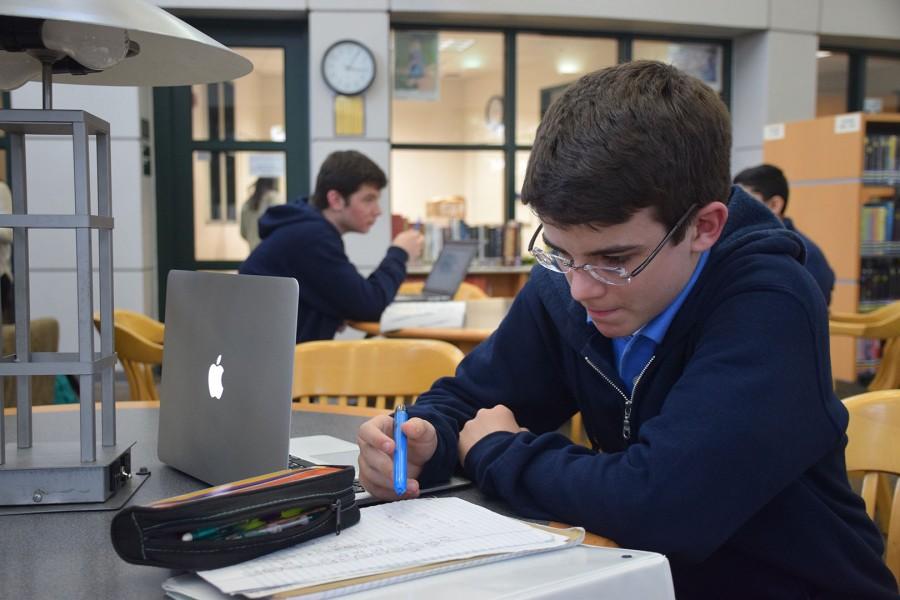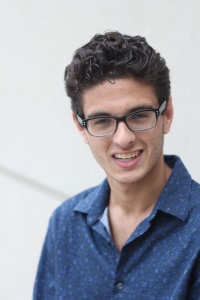During chapel, Chaplain Vinal asks us to bow our heads and join him in prayer. However, this is optional and many students do not engage in the Christian observance. However, no matter what beliefs a student has, they tolerate the religious ceremony with reverence and respect.
Because we are immersed in this open-minded atmosphere, it is easy to forget how special our mutual respect for one another actually is. In an age where one can get murdered for praying to the “wrong” god, our school’s religious tolerance is a rare and beautiful thing.
Yet, all it takes is a glance at a newspaper to acknowledge that the world is much different than the tiny microcosm we experience. In the “caliphate” of the Islamic State, ruthless Sunni militants have established a theocracy built upon the blood of “infidels.” The terrorists are in the process of committing a mass genocide, mercilessly killing Christians, Shiites, Yazidis and even Sunnis who don’t adhere to the Islamic State’s perverse version of Islam.
However, when witnessing the devastation occurring in Iraq and Syria, we make a common mistake. Thinking that these doings are limited to one region of the world, we assume that these crimes could never happen in “civilized” society and are largely caused by a seemingly “barbaric” religion: Islam. Not only is this belief wrong on multiple levels, but it is also naive.
In reality, religious intolerance is not limited to the Middle East, but it is a widespread phenomenon across the world. Moreover, the great irony of the situation is that the primary motivation for religious groups to be intolerant is that another religion is perceived to be intolerant.
For example, the most polarizing conflict in the world is the question over the statehood of Israel. This political conflict has been linked with a religious enmity. In the Israeli side, Prime Minister Netanyahu’s administration has justified strikes and raids in the West Bank and Gaza as a measure to prevent a terrorist attack against Israel. Unfortunately, this seemingly noble effort has translated as an aggressive campaign to the people of Palestine. According to Amnesty International, more than 2,000 Gazans died under Israeli bombardment and invasion during Operation Protective Edge in the summer of 2014.
These grim statistics paint Israel as an enemy to the Arab world. Even though this is false, Palestinians and their allies claim that the Zionists are waging a war against Islam. Then, when a car bomb detonates in the heart of Jerusalem, the Jews claim that the intolerance of Islam is aiming to destroy their state. It is a vicious cycle that has had destructive ends.
When there is an international dilemma that a state can’t solve, that state will often turn to a minority within their own country that they can associate with this dilemma. After the loss of WWI and a devastating economic crisis, Nazi Germany found the ideal target in the sparse Jewish community. With a wave of propaganda against the ridiculous idea of Zionist global dominance and the Jewish betrayal that led to defeat in the war, the Nazis organized the most horrendous genocide the world has ever seen.
Is there worse to come? Disturbingly, historical parallels are constantly being drawn before our eyes. Professor Bernard Lewis from the University of London studies Anti-Semitic literature in Arab Countries, and offers his perspective.
“Anti-Semitic literature has become an essential part of Arab intellectual life, considerably more than in late nineteenth- and early twentieth-century France, and to a degree that has been compared to Nazi Germany,” Lewis said.
Unfortunately, Anti-Semitism has also gained foothold in the place where it most infamously was depicted, Europe. Frankly, these concerns are not without reason. On May 27, 2014, four Jewish people were shot dead in the Brussels Jewish Museum. However, unlike in the Holocaust, these attacks are made in the name of a war against the “crimes” of the state of Israel.
However, the Jewish people aren’t the only ones feeling the heat wave of religious intolerance. After the devastating Charlie Hebdo attack in Paris, there was a dramatic surge in Anti-Muslim behavior across Europe, especially in France. In this attack, a group of armed Islamic militants killed seventeen people, including members of the satirical magazine, Charlie Hebdo.
Subsequently, this has led to a state where the Muslim minorities have been directly associated with the behavior of a few radicals. Without any tolerance, many Europeans have committed various hate crimes at ordinary people who observe the Islamic faith.
According to CNN, “religious buildings have been set on fire, a pig’s head has been stuck to a prayer room door and messages of hate have been sprayed on walls.” Perhaps, the most saddening part of this dilemma is that many of these attacks are justified by the Christian faith. In this environment of pitting different religions against each other, the concept of tolerance seems to be steadily slipping away.
To clarify, there is no religious group that isn’t guilty of being intolerant. Too often, we tie terrorism and hate to the Islamic faith, but the same could be said about most other global religions. Anders Breivik slaughtered 77 people in Norway to further his anti-Muslim, anti-immigrant and pro-“Christian Europe” agenda. Recently, extremist Buddhist have rampaged and killed innocent muslim families in Sri Lanka and Myanmar. In the last ten years, Hindu terrorist organizations have been linked to over six mass attacks(The Economic Times).
This does not mean all religions are equally bad. No, it means that every religion is burdened by certain radical factions. For us, the challenge is not to allow these radical factions to influence our opinion and persuade us to stray from the virtues of religious tolerance.
Currently, the US is blessed in the sense that intolerance of religions is not truly a widespread issue. However, intolerance grows quickly. All it takes is the right conditions for demagogues to infiltrate our minds and push us towards the path that so many other nations are trodding upon. As we slowly graduate from this tolerant environment, let’s remember to keep our guard and never accept intolerance in any way, shape or form.
Even though Chapel may not engage all religions, let us recognize how special it is to hold a prayer with no violence, no uproar. For as I gaze upon a crowd of every imaginable religion, standing in peace, I witness an event that in many countries would be undeniably impossible. The United States is where the impossible becomes possible. Now, it’s our responsibility to keep our nation a tolerant one.











